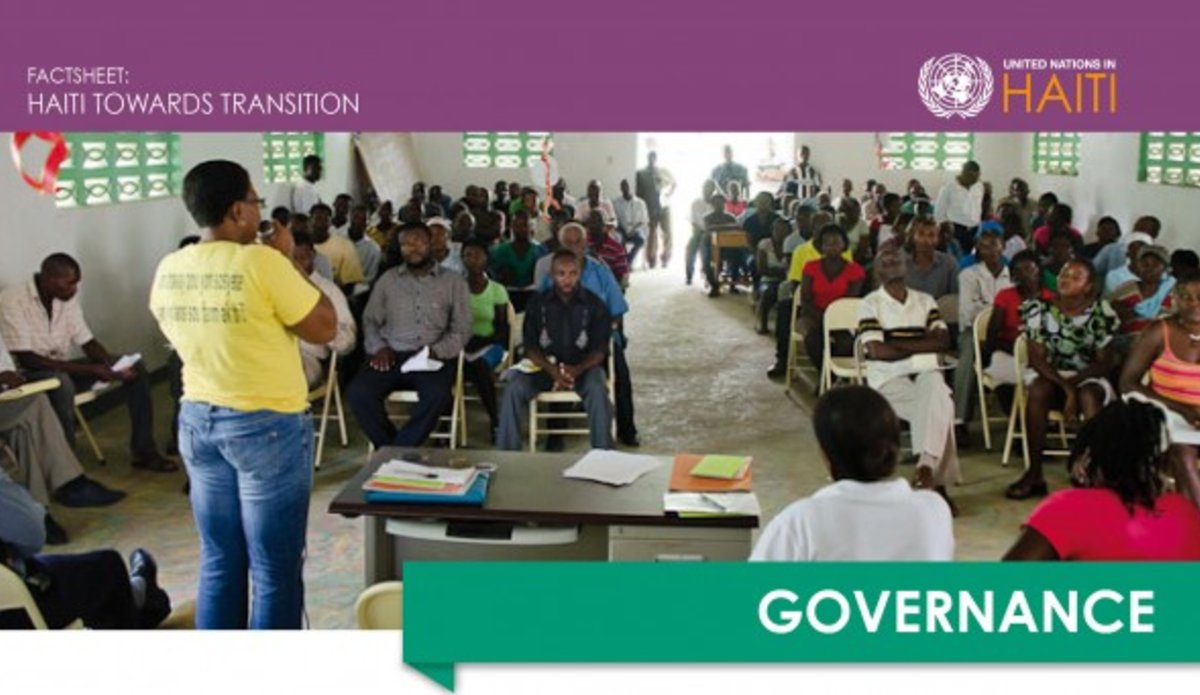United Nations in Haiti 2013 – Summary : GovernanceLes Nations Unies en Haiti – Bilan 2013 : Gouvernance
Institutional governance remains a key challenge in Haiti. State revenues barely cover the operational needs of ministries and state entities, and the Triennial Investment Plan (PTI) for 2014-2016 relies heavily on external resources such as donor funding and PetroCaribe loans. Access to state services generally remains highly insufficient and varies greatly from one region to another. However, positive steps have been taken. The first international meeting of the national coordination framework of external development aid in Haiti (CAED) took place on the 10th of May 2013. It represents an important achievement towards greater alignment of external funds and the Government priorities. Progress was also made regarding the state reform agenda.
La gouvernance institutionnelle demeure un grand défi en Haïti. Les recettes de l’Etat couvrent à peine les besoins opérationnels des ministères et des entités publiques, et le Plan d’investissement triennal (PTI) pour 2014-2016 dépend fortement des bailleurs et des prêts de Pétrocaribe. L’accès aux services de l’Etat reste insuffisant et varie largement d’une région à l’autre. Cependant, certains pas positifs ont été franchis. La première rencontre internationale du Cadre pour la coordination de l’aide au développement externe en Haïti (CAED) a eu lieu le 10 mai 2013. Ceci représente une avancée significative vers un meilleur alignement des fonds externes avec les priorités du gouvernement. Le programme de réforme de l’Etat a aussi progressé.
 ONU
ONU Nations Unies Maintien de la paix
Nations Unies Maintien de la paix







